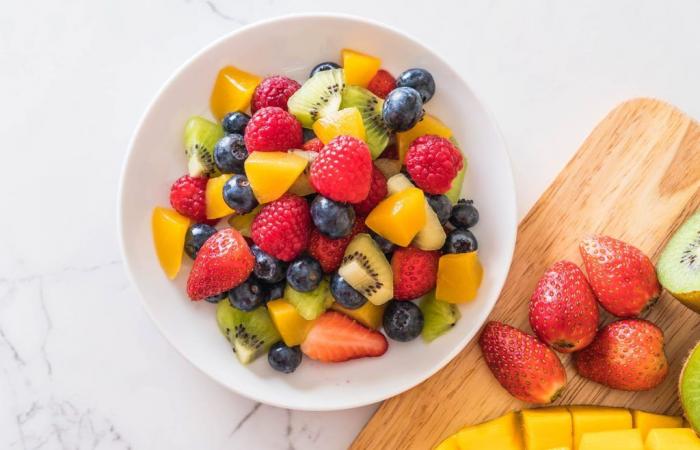Even more effective if eaten with the skin.
In general, fruits are particularly beneficial for health, including the heart. Rich in fiber and vitamins, they have anti-inflammatory and hypotensive effects, thus protecting the vessels and arteries. One of them, a flagship of our French agriculture, would also have excellent benefits on cholesterol.
If this fruit is particularly good for reducing the level of LDL cholesterol – bad cholesterol – in the blood, it is notably thanks to its high content of quercetin, a powerful antioxidant present in the skin (hence the interest not to peel it, so better organic!). A single fruit contains almost 2 mg. In a meta-analysis published in the journal Food, Science & Nutrition, researchers demonstrated that quercetin supplementation significantly reduced bad cholesterol levels (between -0.4 g/L and – 1.3 g/L depending on the person). followed) and C-reactive proteins, a well-known marker of inflammation and a tool for predicting heart disease, without lowering the level of “good cholesterol” (HDL) which protects against cardiovascular disease. Procyanidins, tannins contained in its flesh and skin, also act on the absorption of cholesterol and the reduction of plasma lipid levels, other researchers reported in a previous study.
We love this fruit for its juicy and sweet side, but also because it can be eaten in desserts and in savory recipes. Although its peak season is in autumn, it can easily be found all year round. With its 3,000 different varieties, sometimes floury, sometimes tart, you will no doubt have guessed that it is the pear. Researchers recommend consuming 5 per week and preferably the “red” pear (Williams, Comice, etc.) to have significant hypolipidemic effects. Note that quercetin is a bioflavonoid also present in large quantities in capers, elderberries, acerola, celery or red onion, with potentially the same positive effects on cholesterol… Good news, no ?






